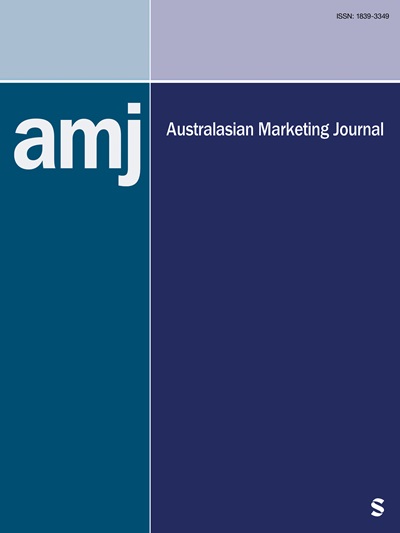活动参与:利用活动体验打造品牌
IF 4
Q2 BUSINESS
引用次数: 0
摘要
公司在活动体验上投入了大量资金;然而,许多人批评他们在举办活动时没有充分了解其影响程度,或者如何优化其设计。为了从活动体验中获益,不仅要考虑客户如何参与活动,还要考虑活动参与如何转化为与主办品牌的参与,从而最终推动品牌忠诚度。本文在品牌营销事件体验的背景下,实证地探讨了客户事件参与在促进品牌参与中的作用。调查了参与此类品牌活动的参与者,6个澳大利亚葡萄酒品牌,举办了10场不同的活动,同意在研究中合作,总共有274名参与者回应。结果表明,在情感体验、感官体验、务实体验和关系体验中,事件参与充分中介了顾客品牌参与的关系。此外,是与主办品牌的接触,而不是与活动的接触,促进了对忠诚行为意图的影响。这些发现表明,以单一焦点(即仅事件或仅品牌参与)来观察参与提供的洞察力有限,并且无法揭示事件体验的真正影响;只有通过探索参与焦点之间的相互关系,我们才能真正理解事件体验如何影响行为品牌忠诚度。这为促进参与转移(即在事件和品牌之间)提供了重要的管理意义,同时利用联想网络理论来解释客户参与如何从事件溢出到品牌,并更好地解释参与对象之间的相互依存关系。本文章由计算机程序翻译,如有差异,请以英文原文为准。
Event Engagement: Using Event Experiences to Build Brands
Companies invest considerably in event experiences; however, many are criticised for hosting events without understanding the full extent of their impact, or how to optimise their design. To benefit from event experiences, it is critical to consider not only how customers engage with the event, but also how event engagement transfers to engagement with the host brand to ultimately drive brand loyalty. This paper empirically explores the role of customer event engagement in facilitating brand engagement, within the context of branded marketing event experiences. Surveying attendees of such branded event experiences, six Australian wine brands, running 10 diverse events, agreed to collaborate in the research, yielding a total response of 274 participants. Results indicate that, for emotional, sensorial, pragmatic and relational experiences, event engagement fully mediates the relationship with customer brand engagement. Furthermore, it is the engagement with the host brand, rather than engagement with the event, that facilitates the effect on behavioural intentions of loyalty. These findings suggest that viewing engagement with a single focus (i.e., only event or only brand engagement) provides limited insight and does not uncover the true impact of event experiences; it is only through exploring the interrelationships between the engagement foci that we can truly understand how event experiences impact behavioural brand loyalty. This offers important managerial implications to facilitate engagement transfer (i.e., between event and brand), while drawing on associative network theory to explain how customer engagement spills over from the event to the brand and better account for the interdependence across engagement objects.
求助全文
通过发布文献求助,成功后即可免费获取论文全文。
去求助
来源期刊

Australasian Marketing Journal
BUSINESS-
CiteScore
14.90
自引率
16.70%
发文量
25
期刊介绍:
The Australasian Marketing Journal (AMJ) is the official journal of the Australian and New Zealand Marketing Academy (ANZMAC). It is an academic journal for the dissemination of leading studies in marketing, for researchers, students, educators, scholars, and practitioners. The objective of the AMJ is to publish articles that enrich and contribute to the advancement of the discipline and the practice of marketing. Therefore, manuscripts accepted for publication will be theoretically sound, offer significant research findings and insights, and suggest meaningful implications and recommendations. Articles reporting original empirical research should include defensible methodology and findings consistent with rigorous academic standards.
 求助内容:
求助内容: 应助结果提醒方式:
应助结果提醒方式:


